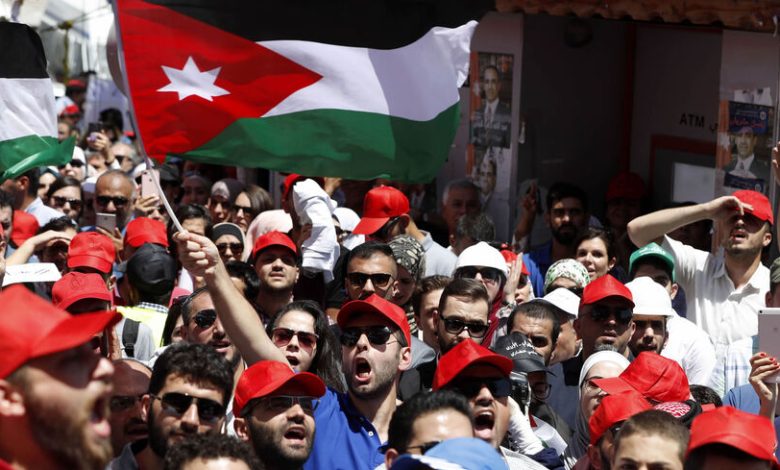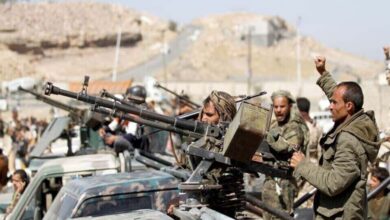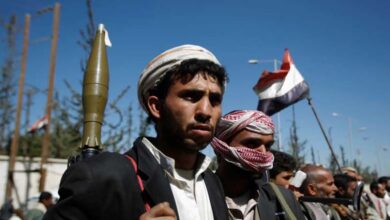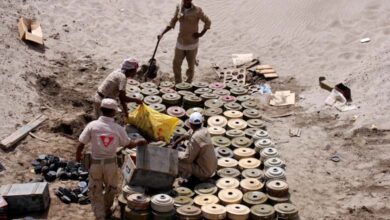Protests in Jordan get out of control after security officer killed

A Jordanian officer was killed in clashes with protesters in the Husseiniya area of the southern province of Ma’an on Thursday evening. The protests are widespread in the province due to transportation sector strikes to demand a reduction in oil prices, which have begun to expand to other provinces. Fears of the country falling into chaos and violence have arisen following the US embassy warning its citizens against traveling to the south.
In a statement, the police said the officer was killed “after being shot in the head while dealing with riots by a group of saboteurs and outlaws in the Husseiniya area of Ma’an province” in an attempt by the authorities to condemn the actions that Prime Minister Bisher Al-Khasawneh failed to encircle, observers said. The country is on the verge of civil disobedience, they added.
The current protests have expanded to include other provinces, which has made the authorities confused, adhered to the conspiracy theory, and thus tried to condemn the protests and label them as vandalism, after attempts to flirt with the poor groups by granting them aid failed despite the economic conditions.
“We will strike with an iron fist at anyone who tries to harm lives and public property and threaten the security of the nation and its citizens,” the police said.
Witnesses said a long convoy of armored vehicles was seen entering Ma’an, while reinforcements were sent to the neighborhood where the police officer was killed.
Earlier, a security source said the officer had come under fire from unknown assailants during clashes in the Husseiniya area of Ma’an. Four other security personnel were wounded, and witnesses said young men clashed with police in several poor neighborhoods of the city as well as in the densely-populated city of Zarqa, northeast of Amman.
Riot police fired tear gas in the White Mountain district of Zarqa to disperse protests that erupted in Jordan’s second most populous city.
Witnesses also reported that dozens of young people held a protest in Amman’s Tafaylah neighborhood, where police clashed with protesters chanting anti-government slogans.
Witnesses said young men set tires ablaze on a major highway between the capital and the Dead Sea, disrupting traffic.
In the north, near the border with Syria, young men clashed with police in several districts of the city of Irbid.
Sporadic skirmishes spread to smaller towns in the area where police used tear gas to disperse stone-throwing youths.
The government sought to contain the protests in vain, initially using its traditional arms to send messages to the street that it was serious about reform, despite the bad international conditions. The members of parliament who were affiliated with the government also sought to calm down and said that the crisis would be temporary and would not reach the limits of civil disobedience.
MP Aref Al-Saaidi, a member of the Joint Governmental Parliamentary Committee, expressed his hope that the problem would be solved as soon as possible, but he called on the people to “stand by the government because the economic situation is difficult for everyone.”
The Senate demanded in a statement Wednesday “the adoption of wisdom methods and the preservation of the country’s security and stability”, acknowledging “the magnitude of economic and living pressures that citizens are suffering from”.
The government and its supporters are sticking to the conspiracy theory by accusing unnamed parties of exploiting the protests to their advantage. The General Federation of Trade Unions of Jordan has lashed out at unnamed parties, accusing them of using the trucking strike to their own agendas.
The seriousness of these movements comes more than a year after the Fitna incident in which the former Jordanian Crown Prince, Hamza Bin Al Hussein, was accused of seeking to reach power and assume the throne of the Kingdom through incitement.
In a sign of the deteriorating situation as protests escalated, the US embassy issued a security warning prohibiting US government employees from personal and official travel to southern Jordan.
Tensions mounted in Ma’an and several other southern Jordanian cities after several days of sporadic strikes by truck drivers protesting fuel price hikes.
The government pledged to address the demands of the strikers, but said it had already paid more than 500 million dinars ($700 million) to control rising fuel prices this year.
But officials said more could not be spent to support prices due to the constraints of an IMF-backed economic reform program.
Shops in Ma’an and several other Jordanian cities closed Wednesday in solidarity with government demands to lower fuel prices, which drivers say have caused them business losses.
Some activists on strike threatened to hold protests in provincial cities on Friday to force the government to reverse its decisions.
Jordan has witnessed a wave of civil unrest in the past, due to citizen anger with authorities over deteriorating living standards, corruption and high fuel prices as a result of the Ukrainian wars.
The Jordanian economy relies on international and Gulf donations and aid as well as some tourism revenues, but the current international situation, especially after the COVID-19 pandemic, has left its economy in a state of decline.












